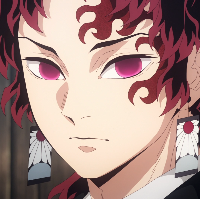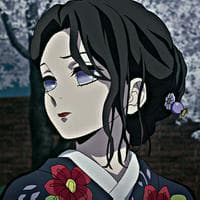Mikiya Kokutou typ osobowości MBTI
Osobowość
"Jaki typ osobowości jest {profilename}? {profilename} jest typem osobowości {mbti} w mbti, {enneagram} - {iv} - {tritype} w enneagram, {big5} w Big 5, {sociionics} in Socionics."
So, after having agreed upon INFJ a while back, and taking some time to ponder on it, I've come back to compile my reasoning here. Without a doubt, I think Kokutou is an INFJ. Dominant Ni didn't seem too prevalent in the series on my first or second viewing, but looking back at it now, it's actually quite obvious. It's probably at it's most obvious in A Study in Murder: Part 1 when Kokutou is attempting to get closer to Shiki. He's shown considerable physical evidence for Shiki being the serial killer terrorising the city, even witnessing her at one point standing over the dead body of one of the victims covered in blood. Yet he adamantly insists the entire time on defending her, even going so far as to contradict her when she herself believes that she is the killer. At the end of the movie, his rationale is explained in a way that comes up later in the series; he understood the burden that murder has on a person, and their soul, and didn't see that burden from Shiki no matter how hard he looked. Therefore, he could not believe she was a murderer, despite all the physical evidence saying she was. Now, let's think about what Ni actually is. Ni is an information processing function which internally processes underlying connections, meanings, and lessons (contrary to Ne, which does that for the external environment), to form a singular vision and interpretation of the information they gather. Despite initially just appearing to be super strong yet naïve Fe, this entire episode is basically him using his Ni to an egregious extent. This is strengthened when you consider that he's revealed to have been entirely correct from the beginning near the end of the series. He understands the intense burden being a murderer has on a person's soul without even needing to have experienced it himself (the aspect of Ni focused on understanding underlying connections, meanings, and lessons), and he's used that to form a singular, extremely stubborn interpretation of the information he's received. A strong Si user would have taken the information as-is and easily concluded the obvious solution that Shiki was a murderer, a strong Ne user would have been open enough to new information and interpretations that they would not have taken such a stubborn stance, and a strong Se user would fall into both problems. The particular way he processed the information he received surrounding the murders was insanely Ni centric. His Fe throughout the series is very strong, though I don't think most people have really questioned this. One of the more direct moments, just for the sake of clarity, comes near the end of the series in A Study in Murder: Part 2. When he recovers from his attack by Lio Shirazumi and tries to find Shiki, he expresses that the only reason he fought so adamantly to prevent Shiki from killing Lio was not simply because of his own morals, but because he knew Shiki could never be happy living with the burden of being a murderer (harkening back to the first Study in Murder). Not only does this strengthen the Ni argument before, it also shows that his Ni information processing is intently directed towards Fe decision making goals. Pretty clear cut. His Ti throughout the series isn't quite so obvious, but it's honestly there, and it's stronger than most people acknowledge. Though his Fe is one of the more noticeable parts of his personality, he shows the ability to shut it off at times to give very distant, logical analysis' without emotional interference. One clear moment of this is in Remaining Sense of Pain, when the Hollow Shrine is analysing Fujino Asagami's situation. Despite being a situation that should clearly activate his Fe in reaction to Fujino's painful circumstances, he's able to take a step back and critically analyse the details they knew about Fujino to the point that he figured out what was going on with her before anyone else did. It's easy to ignore his Ti due to just how prevalent his Fe is, but I think it's underacknowledged just how hand-in-hand they are at some points. And finally, Se. Funnily enough, this was the thing that gave me the most confidence in this typing. Because while some typings make decent sense (ENFJ, ESFJ, ISFJ, etc), they all have the same issue. Kokutou uses a lot of functions to a decent extent, enough that putting almost any of them as inferior is questionable (too much Ti for ExFJ, too much Ne for ISxJ, etc). But Se is the only function I sincerely can't see at all in the series beyond the most rudimentary levels. It's almost certainly his weakest function, which is exactly what an inferior function is supposed to be. So with that, there's a solid argument for very strong Ni and Fe, complimented by Ti to balance out the Fe, and with the weakest function being Se. INFJ all the way.
Biografia
An unassuming ordinary high-school student, he is the male protagonist of the series. After initially seeing Shiki in the snow, Mikiya confronts her and becomes her only friend. He becomes more and more attracted to Shiki as she confides in him until an accident leaves Shiki in a coma for two years. After crossing paths with dollmaker Touko Aozaki, he drops out of college to work for her as an investigator. After Shiki awakens from her coma, Mikiya finds he still has feelings for her and vice versa. Their relationship continues to grow throughout the remainder of the series.
Osobowość correlate

Shiki Ryougi

「Shiki Ryougi」-Void

Fujino Asagami

Souren Araya

Lio Shirazumi

Azaka Kokutou

Mitsuru Kamekura

Cornelius Alba
















